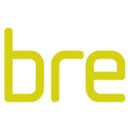BRE Red Book
The Loss Prevention Certification Board (LPCB) has been working with industry and insurers for more than 100 years to set the standards needed to ensure that fire and security products and services perform effectively. LPCB is part of BRE Global.
LPCB’s Loss Prevention Standards (LPS) are applied in fire and security sectors around the world. LPCB offers third-party certification confirming that products and services have met and will continue to meet these standards.
Selecting LPCB certificated products and services reduces fire safety and security risks, demonstrates due diligence and reduces liability for manufacturers, their insurers and customers.
All fire and security products, services and companies certificated by LPCB to LPS and other industry standards are listed in the ‘Red Book’. These listings can be downloaded free of charge from Red Book Live: http://www.RedBookLive.com.
The schemes operated are classified as:
- Fire detection and alarm products and related installers.
- Fire suppression products and related installers.
- Fixed fire-fighting systems and related installers.
- Passive fire protection products and related installers.
- Cables.
- Security protection systems.
- Management systems.
- Construction products.
NB BRE Global and sister company BRE are part of the BRE Group which is owned by the BRE Trust. The Trust is a registered charity that works to advance knowledge, innovation and communication in the built environment. All profits made by the its subsidiary companies are used to fund new research and education programmes.
[edit] Related articles on Designing Buildings Wiki
Featured articles and news
Inspiring the next generation to fulfil an electrified future
Technical Manager at ECA on the importance of engagement between industry and education.
Repairing historic stone and slate roofs
The need for a code of practice and technical advice note.
Environmental compliance; a checklist for 2026
Legislative changes, policy shifts, phased rollouts, and compliance updates to be aware of.
UKCW London to tackle sector’s most pressing issues
AI and skills development, ecology and the environment, policy and planning and more.
Managing building safety risks
Across an existing residential portfolio; a client's perspective.
ECA support for Gate Safe’s Safe School Gates Campaign.
Core construction skills explained
Preparing for a career in construction.
Retrofitting for resilience with the Leicester Resilience Hub
Community-serving facilities, enhanced as support and essential services for climate-related disruptions.
Some of the articles relating to water, here to browse. Any missing?
Recognisable Gothic characters, designed to dramatically spout water away from buildings.
A case study and a warning to would-be developers
Creating four dwellings... after half a century of doing this job, why, oh why, is it so difficult?
Reform of the fire engineering profession
Fire Engineers Advisory Panel: Authoritative Statement, reactions and next steps.
Restoration and renewal of the Palace of Westminster
A complex project of cultural significance from full decant to EMI, opportunities and a potential a way forward.
Apprenticeships and the responsibility we share
Perspectives from the CIOB President as National Apprentice Week comes to a close.
The first line of defence against rain, wind and snow.
Building Safety recap January, 2026
What we missed at the end of last year, and at the start of this.






















